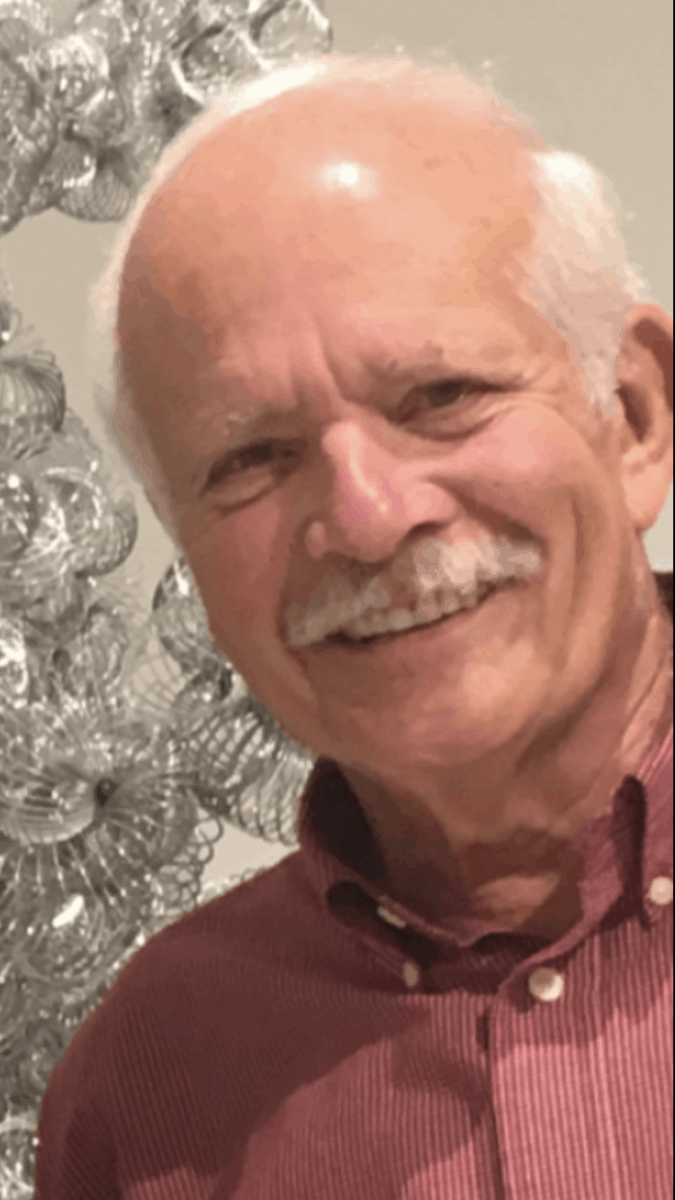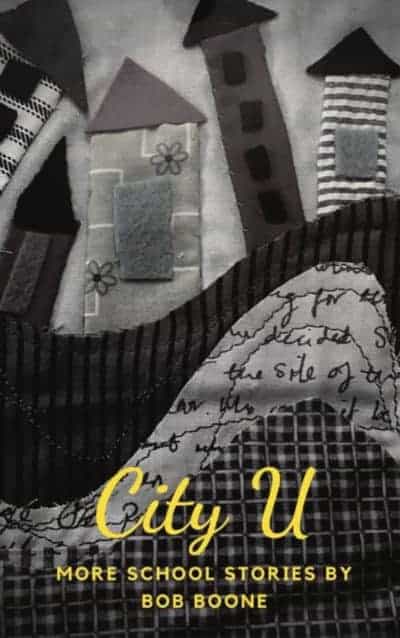
Bob Boone has led a very interesting life. To give you a glimpse into his depth of experience (professional and life), we caught up with Bob on the eve of the release of his latest book, City U. Eckhartz Press is proud to add this collection of short stories to our ever growing list.

You’ve previously written so many things, including a memoir, a great biography of Hack Wilson, a bunch of textbooks, and now this book–your third book of short stories. How is this one similar or different than your previous two short story collections?
Bob: Like FOREST HIGH, this collection of stories features characters and situations that are especially common in schools. Schools are busy places — full of people who find themselves in complicated situations. These are situations that matter deeply to those involved. In FOREST HIGH, the situations involve high school students and high school teachers. At City U, we find older students, returning students, foreign students, career counselors, parttime instructors, and many other folks with complicated lives.
What is it about the short story format that appeals to you, as opposed to more long-form writing like your memoir or Hack Wilson book?
Bob: I like to read novels and long pieces of non-fiction. I like to read books for kids. I like biographies and long novels. I like thrillers and mysteries.
I like all of those, but I especially love the short story. It’s my favorite form. I read and reread short stories. I read for enjoyment but also for inspiration. If a story works, for me I want to keep reading to find out why it works so well. I’ve read “Hair Cut” by Ring Lardner dozens of times and I do the same thing with stories by Alice Munro, Bernard Malamud, Anton Chekhov, and other great writers.,
Now I’m reading and rereading “Babes in the Wood” by Margaret Atwood and asking myself what does she do to make it work so well?
These all take place at a city college, and that seems like an obvious choice for a college teacher like yourself. How many of the characters (without naming names) from your stories are inspired by the actual people you meet in school?
Bob: My characters are not based specifically on particular people that I know from the schools. But people I know from the schools stick in my mind and give me ideas for my characters. I “know” the people I have invented – their dreams, memories; concerns; secrets; disappointments; opportunities; fear.
I know a guy like Clarence – a self-described expert who takes himself a little too seriously. I know athletes who returned their scholarships and older teachers who fought their way past booze and teachers who lost that battle.
In 2010, First Lady Michelle Obama presented you with an award for your work with kids in the city. Tell us a little more about that. It sounds like an exciting experience.
Bob: Visiting the White House was both satisfying and exciting because Young Chicago Authors, a program I had helped start, would be receiving an award for our work with young writers from the city.
It was also hectic. A YCA student and I flew to Washington DC in the morning. We took a cab to the hotel, and then, along with the fifteen other recipients, attended a meeting, where we learned what we were to do and when to do it.
That evening, we attended a dinner and a program at the Kennedy Center. The next morning, we went by a bus to the White House. We filed into the lobby, where two Marines led us to a small auditorium.
We sat down in designated seats and before long the First Lady appeared. She welcomed us and congratulated us, and then asked us to come up one at a time with our student. She read a short description of each organization and the reasons for its receiving an award. She presented each us with a plaque and then posed with us for a photo.
Before long, we were back on the bus and soon after that, on a plane flying back to Chicago.
Quite short, but long enough to leave a lasting memory
You’ve been in the Chicago area for a long time now, but you’ve also lived in New York and Germany. How does this city and its inhabitants inspire your work?
Bob: Since the late 70s, when I left regular teaching to become a freelance teacher, I have been all around the city. I ran a writing program at Avalon Park, I offered SAT/ACT programs for basketball players at Marshall High School and dozens of other high schools, I directed writing workshops at De Paul and Columbia College, I taught creative writing in the Seminar Sessions at Payton High School. And every Friday morning for several years, I drove down to Hubbard High School to help teach a class.
Often one place led to another. In 1985 I went to Avalon Park for a Creative Writing program for basketball players. Someone from Cabrini Green heard about this and invited me to come to the projects. I did and from that I got the idea for YCA.
And I’m not through yet.
Leave a Comment